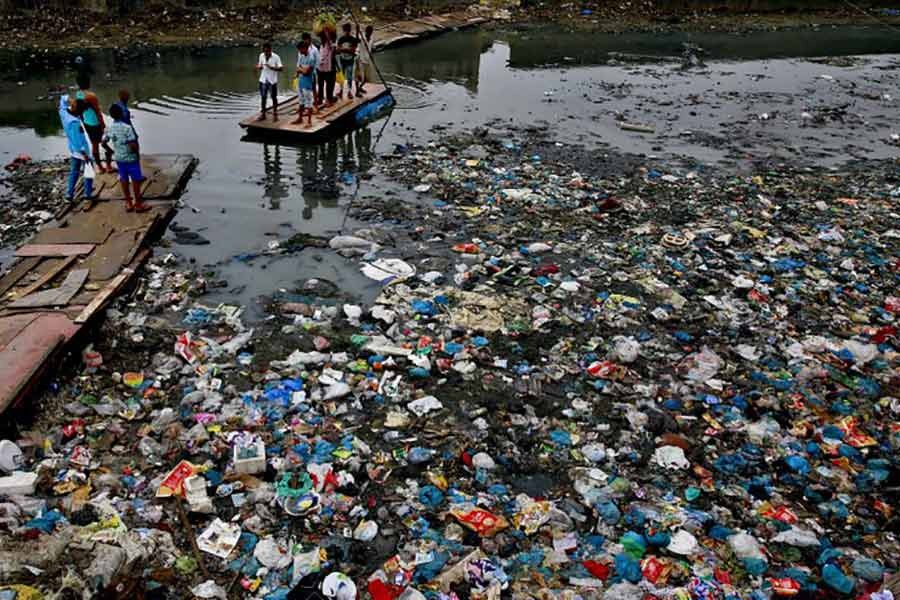Around 54 tonnes of plastic waste was generated daily in Sylhet City Corporation (SCC) last year, according to a new study.
“Of the plastic waste, the most used single-use plastic products were sachets, one-time used utensils, and personal care products, the study added.
The study was conducted by the Environment and Social Development (ESDO) collaboratively with the University of Portsmouth under the STEPP (Sustainable Transitions to End Plastic Pollution) project.
The findings of the study were disseminated on Wednesday at a virtual event. SCC Mayor Ariful Haque Choudhury joined the event as the chief guest.
In his address at the event, the mayor said, “Waste management is the prime challenge for us. Segregation at the source is the most important issue of sustainable waste management, and community participation is highly-needed for that.”
According to the study, 67 per cent was organic waste, 17 per cent was plastic waste, 3 per cent was e-waste, 2 per cent was medical waste and 1 per cent was other types of waste.
The most common of single-use plastic waste like poly bags, plastic bottles, personal care products, sachets or mini packs, food-packaging, one-time utensils such as disposable cutlery along with plastic shoes, ornaments, baskets, barrels, plastic furniture, PVC fittings, PVC banner, festoon, and plastic toys.
Among all plastic waste, 78 per cent is single-use plastic.
A sharp increase in plastic waste generation was observed in Sylhet City Corporation during the Covid-19 pandemic making the yearly increase at 18 tons/year in the Year 2020-2021.
Syed Marghub Murshed, Former Secretary of Bangladesh and Chairperson of ESDO asked the government to strictly implement existing regulatory restrictions on the use of single-use plastic products, particularly poly bags.
He also urged the government and concerned organizations to build and supervise a sustainable waste management system at all of Sylhet's tourist sites.
Dr Cressida Bowyer, a Senior Research Fellow at the UK's University of Portsmouth, said, “From the study, we found that the open dumping practice in Sylhet City is leading to various problems like pollution and health hazards. It was also seen that both surface and groundwater are affected by this. This underlines the current waste management system is not sustainable.”
Shahriar Hossain, Secretary-General of ESDO and also the team leader of the study stated that an integrated waste management system is very important.
Executive Director of ESDO, Siddika Sultana, asked the government to promote cost-effective alternatives to single-use plastics and enforce a legal framework.
The baseline survey for the study was conducted among 600 consumers, 270 retailers, 150 waste pickers and a few manufacturers. The key informant interview was conducted among 15 people who were mostly officials of the bank and other private sectors.


